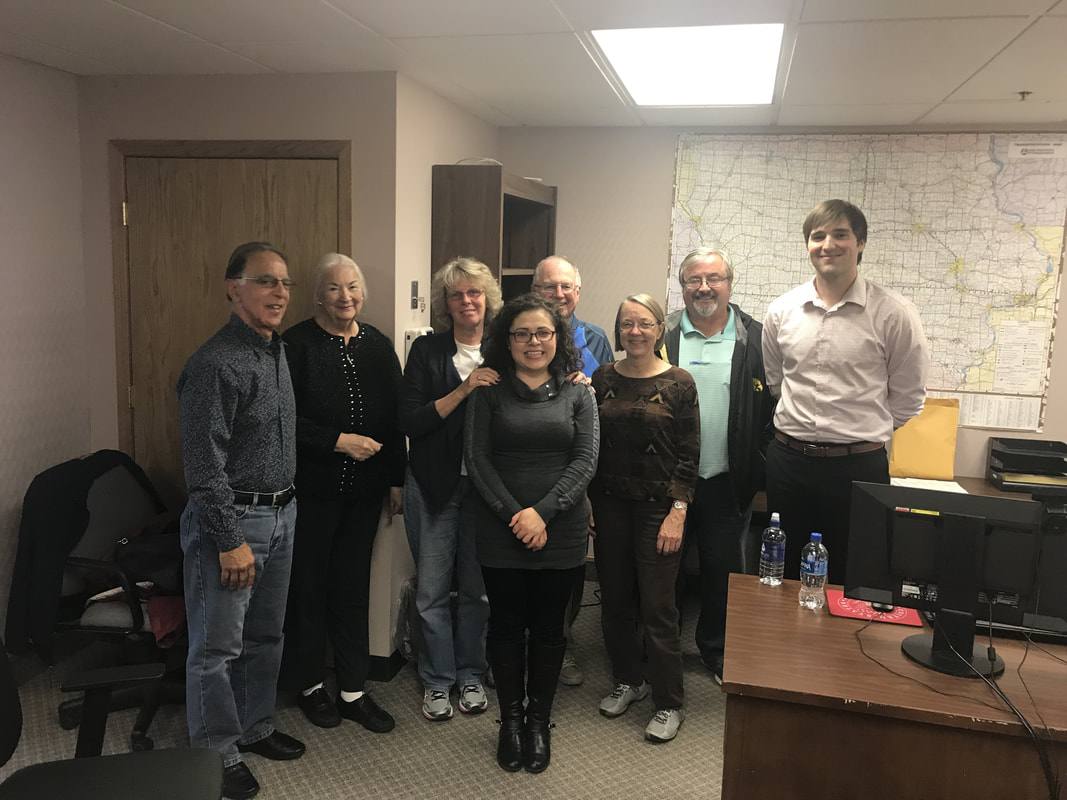The Crisis at the Southern Border:
Principles and Proposed Legislation
Principles
Although we may differ on the problems we address and our proposed solutions, we agree on the following principles regarding the treatment of asylum seekers and refugees who come across our southern border. We call upon all members of Congress and candidates for Congress to consider these principles when devising legislative approaches to fixing the humanitarian crisis at the southern border.
Children should not be locked up in detention centers.
Children should not be separated from their adult family members, or used as bait in immigration enforcement actions.
For-profit private prisons or detention centers should not be used to detain asylum seekers or refugees. Any immigrant in a detention facility should receive adequate food, water, medical care, soap, toothpaste, bedding and access to legal representation.
Asylum seekers and refugees should be protected from sexual abuse.
Alternatives to incarceration should be prioritized for families and other asylum seekers who pose no risk to the community. Bring back and expand the Family Case Management program started as a pilot program under the Obama administration.
Develop new ways to streamline processing of asylum seekers and refugees. Follow international and U.S. laws on treatment of asylum seekers and refugees, and ensure they are treated fairly and receive due process.
Provide aid to countries like Guatemala and Honduras to help them address the problems that cause their citizens to flee their homes.
Proposed legislation on the crisis at the southern border:
Immigration Court Improvement Act of 2019 - Would establish immigration judges as independent judges so that they are not under the Department of Justice, which prosecutes immigration cases. https://www.aila.org/advo-media/press-releases/2019/aila-joins-senators-in-call-for-immigration-court
Fair Day in Court for Kids Act of 2019 - Would require legal counsel for indigent asylum seekers, children and other vulnerable groups who cannot afford a lawyer.
https://www.aila.org/advo-media/press-releases/2019/aila-joins-senators-in-call-for-immigration-court
Other legislative approaches to help resolve the crisis at the border:
Many problems combine to create what we call the border crisis. So, there is neither one cause nor one solution. Political attacks focused on fear of the other interfere with finding solutions. Attempts to enforce a narrow vision in response to the border crisis add to the complexity of the problem and may result in long-term undesired consequences. Legislative approaches to immigration must consider U.S. labor and security needs, the vast differences in the standard of living between the U.S. and other nations, and the level of violence in those nations.
Immigration and Refugee Policies that Reflect U.S. Labor Needs
U.S. labor needs are the main reason that our nation supports a population of ten million undocumented immigrants, many of whom have been here for 20 years or more. Legislative approaches that provide a measured response to labor needs, while also protecting our security needs, would be a start for addressing the crisis at the border. Iowa needs immigrant workers to address workforce shortages. Nationally, immigrant workers are needed to address the nation’s aging population and the decline in workers paying into our Social Security and Medicare programs.
Deferred Action for Childhood Arrivals (DACA) - A good place to start the movement to a sane immigration policy is Congressional establishment of a form of the Deferred Action for Childhood Arrivals (DACA) program. DACA was started by the Obama Administration by executive order and ended by the Trump Administration by executive order. ICE is preparing now to deport these 700,000 young workers if the courts rule against them. DACA recipients were brought to this country as children and in the U.S. we do not punish children for the actions of their parents. And, the U.S. needs these young people in the workforce.
Farm Workforce Modernization Act - This bill, passed by the House with bi-partisan support, is significant because it is the first Congressional response to the labor needs of farmers and ranchers, including dairy and vegetable growers. It is not perfect legislation, and the American Farm Bureau wants to modify some provisions of it as it passes through the Senate; however, it reflects America’s need for workers. Meatpacking plants, which are vital to Iowa’s Ag sector and economy, continually advertise for workers with a starting salary of $16-17 per hour. Nationally, hand-planted and hand-harvested crop work pays two to three times the minimum wage. Even with such high wages, farmers and ranchers struggle to fill these difficult jobs in the absence of immigrant workers.
For further information:
National Immigration Forum: Working Paper: Addressing the Increase of Central American Migrants, updated May 2, 2019
https://immigrationforum.org/wp-content/uploads/2019/04/Border-Solutions_Revised_Final.pdf
Migration Policy Institute: Policy Solutions to Address Crisis at Border Exist, But Require Will and Staying Power to Execute, April 2019
https://www.migrationpolicy.org/news/policy-solutions-address-crisis-border-exist-require-will-staying-power
Bipartisan Policy Center: Policy Proposals to Address the Central American Migration Challenge, July 26, 2019
https://bipartisanpolicy.org/report/policy-proposals-to-address-the-central-american-migration-challenge/
Human Rights First: Testimony of Michael Breen, President and CEO, Human Rights First at the Hearing Entitled: “Kids in Cages: Inhumane Treatment at the Border” before the House of Representatives, Committee on Oversight and Government Reform, Subcommittee on Civil Rights and Civil Liberties
https://www.humanrightsfirst.org/sites/default/files/MB-Written-Testimony-House-Kids-In-Cages.pdf
Note: There are many other pertinent articles at Human Rights First. https://www.humanrightsfirst.org/
American Civil Liberties Union: Immigrants’ Rights and Detention
https://www.aclu.org/issues/immigrants-rights/immigrants-rights-and-detention
NPR: ACLU: Administration Is Still Separating Migrant Families Despite Court Order to Stop,
July 30, 2019
https://www.npr.org/2019/07/30/746746147/aclu-administration-is-still-separating-migrant-families-despite-court-order-to-
Southern Poverty Law Center: No End in Sight, October 3, 2018
https://www.splcenter.org/20181003/no-end-sight
WOLA: Beyond the Wall: A Campaign Defending Human Rights and Migrants in the Trump Era and Migration & Border Security
https://www.wola.org/beyondthewall/
https://www.wola.org/program/migration-border-security/
Note: There are many useful resources at WOLA (Washington Office on Latin America), with up-to-date analyses of new Trump Administration policies. WOLA advocates for human rights in the Americas. https://www.wola.org/
Farm Progress: https://www.farmprogress.com/farm-policy/farmworker-bill-clears-house-way-senate
A brief, but balanced report on the Farm Workforce Modernization Act.



 RSS Feed
RSS Feed


